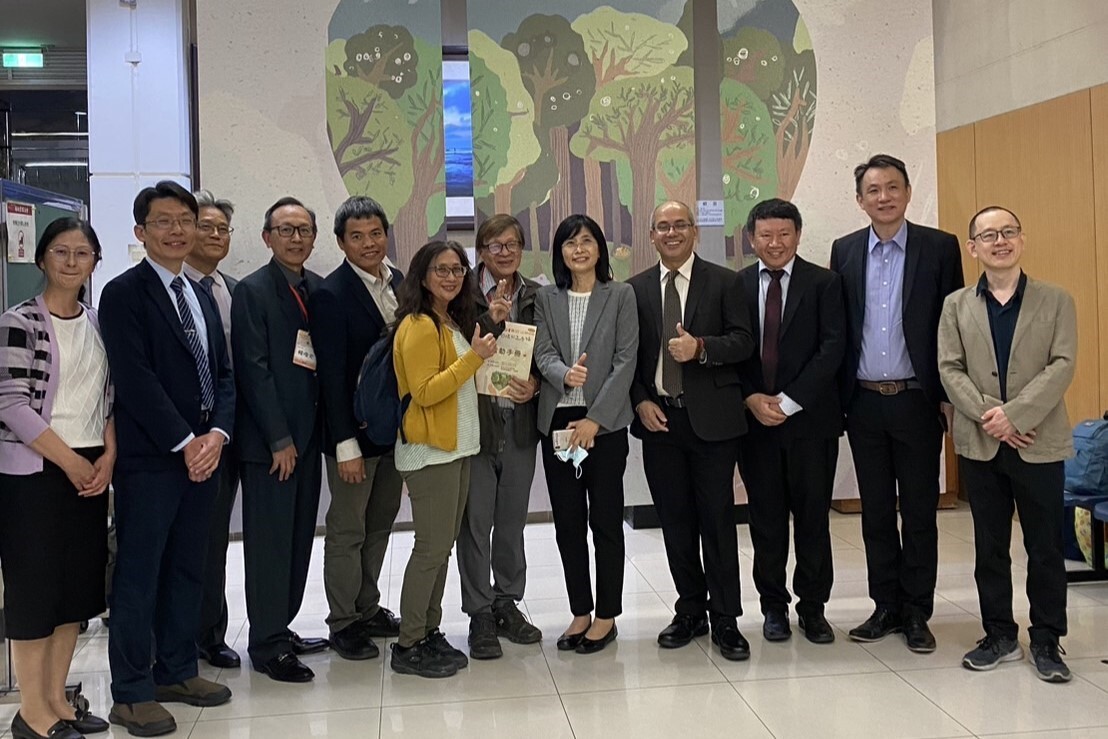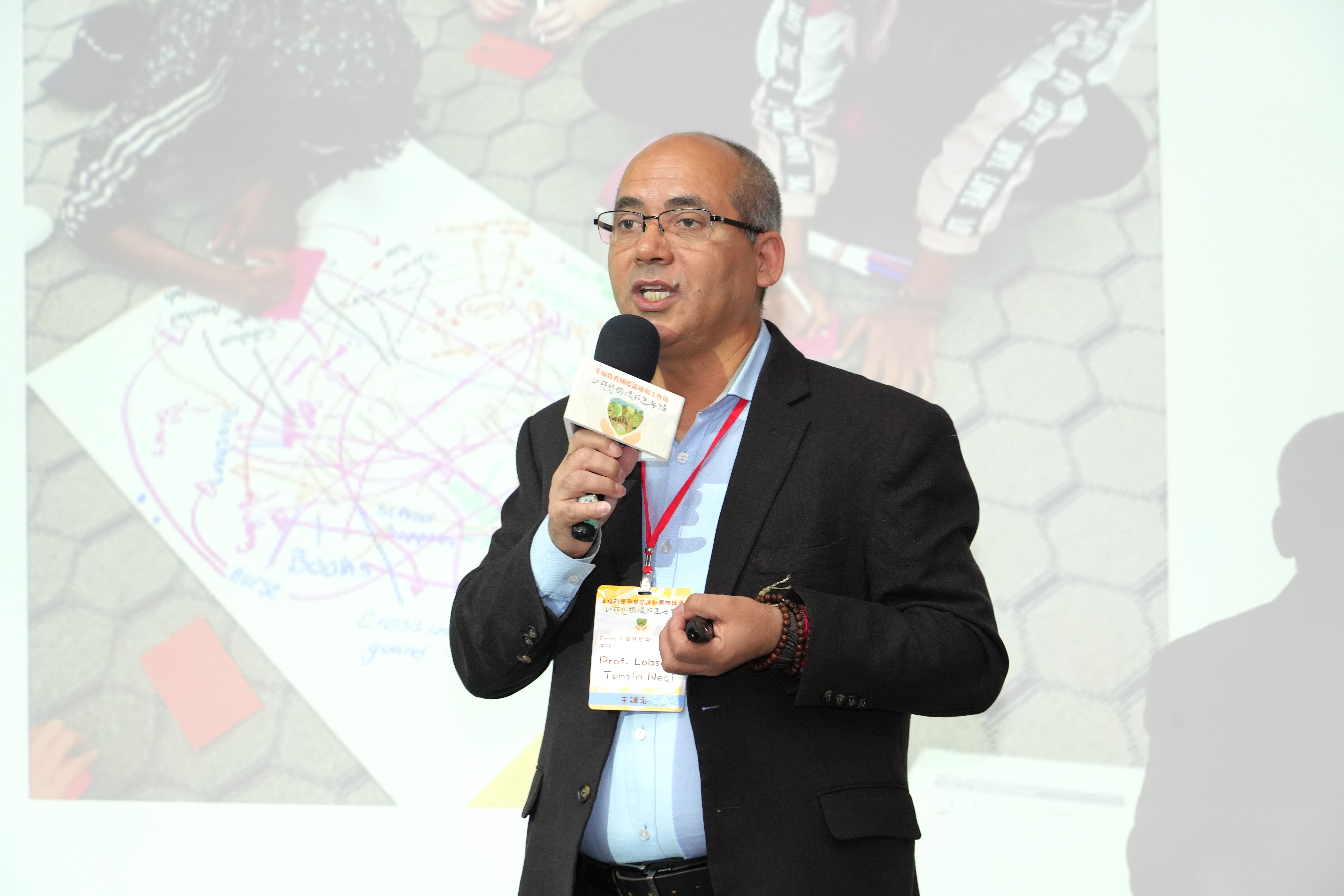Leveraging on Interdisciplinary Collaboration, NCKU held International Forum and Workshop on Happiness Education to Advocate Mental Health
Written by Amber Tyan. Image credit to NCKU News Center.

NCKU held the International Forum and Workshop on Happiness Education, aiming to use the power of knowledge to drive Taiwan's emphasis on mental health
NCKU aspires to create a happy campus environment, aiming to leverage the power of knowledge to promote the well-beings of the Taiwanese communities, and to foster happy and healthy urban environment. On March 12th and 13th, the International Forum and Workshop on Happiness Education was held, inviting scholars, experts, and officials from home and abroad, including Dr. Lobsang Tenzin Negi, Executive Director of the Center for Contemplative Science and Compassion-Based Ethics (CCSCBE) at Emory University, and Assistant Director of the SEE Learning program, Mr. Tsondue Samphel, to discuss the science of happiness, promote the science of compassion, and hope to, taking the NCKU as point of departure, foster positive environment for individuals and communities to thrive, allowing the mind to "come alive" and creating a more harmonious society.

Dr. Lobsang Tenzin Negi, Executive Director of the Center for Contemplative Science and Compassion-Based Ethics(CCSCBE) at Emory University
The International Forum and Workshop on Happiness Education held its first session in the evening of the 12th. NCKU Executive Vice President Dr. Yuh-Neu Chen delivered a speech stating that it is worth pondering whether the rapid advancement of technology brings more happiness to humanity. NCKU President Dr. Meng-Ru Shen emphasizes a people-oriented approach and hopes to use the knowledge of our university to drive Taiwan's emphasis on mental health, cultivate social resilience, and contribute to the discipline of education and the Taiwanese community at large. The forum aligns with President Shen's vision, aspiring to improve the well-being of the individuals and the communities through happiness science and compassion education.
Chairman Peter Gan of the Lizen Education Foundation, a co-organizer of the event, stated in his opening speech that everything in nature is interdependent; material and spiritual aspects are indispensable from each other, as do people in various fields of the society. He emphasized that the compassion meditation in the Eastern tradition, which emphasizes awareness, compassion, and practical engagement, will become a healing force for loneliness and depression in the era of the pandemic.
Following this, the NCKU Executive Vice President Dr. Chen chaired the first speech given by Dr. Lobsang Tenzin Negi titled “Happiness Science from Compassion Shift”. In the round table forum moderated by Dr. Shu-Chiuan Chang, Deputy Director of the Department of Physics, Dr. Jhing-Fa Wang, Chair Professor Emeritus of the Department of Electrical Engineering at NCKU and the founder of Orange Technology, and Dr. Yueh-Nan Chen, Distinguished Professor of the Department of Physics, along with two scholar-educators from the CCSCBE at Emory, discussed whether technology, amidst an increasingly diverse and polarized world, will serve humanity or if AI will replace humans; whether the study of science and physics will reduce negative emotions and improve happiness. The session was closed with the remarks by Dr. Chin-Chun Tsai, the Dean of College of Science at NCKU.

The forum attracted many participants who identified with it to join the event
On the 13th, the forum began with the speeches by Dr. Chun-Li Tsai, Director of Research Center for Humanities and Social Sciences at NCKU, Dr. Shih-His Yin, deputy secretary-general of Tainan City Government, and Liz Li, chief executive officer of the Lizen Education Foundation, followed by a screening of the silver jubilee video of CCSCBE, kicking off a series of presentations on SEE Learning (Social, Emotional, and Ethical Learning) under the compassion shift of the CCSCBE of Emory University. The presentations covered the introduction, framework, impact, and implementation of SEE Learning. In the round table forum moderated by Associate Professor Dr. Chun-Yu Lin from the Department of Psychology at NCKU, scholars including Tzung-Yang Chen, Director of Student Affairs, Counseling and School Safety Division from the Tainan City Government Bureau of Education, Associate Professors Dr. Tsung-Hsing Liu and Dr. Hsun-Chih Huang from the Department of Education at National Kaohsiung Normal University, together with experts from the CCSCBE, deliberated on the development of happiness education in Taiwan.

The attendees were focused and attentive
In the afternoon, the speeches by the two experts from the CCSCBE were chaired by Dr. Der-Long Fang, the Dean of College of Education at National Kaohsiung Normal University. Two certified Level 1 facilitators from the Lizen Education Foundation, Dr. Wan-Ling Kuan and Chai-Wei Lin, conducted a SEE Learning practical training workshop, moderated by Dr. Ai-Ling Chiu, Director of Department of Education at National Kaohsiung Normal University. The workshop focused on attention practices, resiliency skills, interpersonal skills, and systems thinking to enhance psychological well-being and happiness. Finally, principal Kun-Liang Tsai and two teachers of Guangrong Experimental Elementary school shared their experience of implementing SEE Learning. The forum was ended by the speech of Sih-Yu Chen, the school inspector from the Tainan City Government Bureau of Education.
In 2023, the World Federation for Mental Health advocated for "Mental Health as a Universal Human Right," calling for global attention to mental health. NCKU pointed out that the practice of compassion, manifested in focusing on expanding meaningful interpersonal relationships and altruistic actions, is a form of universal ethics based on common sense, shared experiences, science, and built on the foundation of common humanity and interdependence. It is applicable to different countries, cultures, religions, and educational environments.
Established over 25 years ago, the Center for Contemplative Science and Compassion-Based Ethics of Emory University has been at the forefront of Western research, training, and education in compassion. This includes the development of Cognitively Based Compassion Training(CBCT) for university students and adults, as well as Social, Emotional, and Ethical Learning (SEE Learning) for kindergarten to high school students. CBCT was initially aimed at helping alleviate emotional stress in university students. Research has shown that it can increase interpersonal connections and feelings of hope while improving depressive symptoms. SEE Learning emphasizes secular ethics such as kindness, compassion, forgiveness, and justice, which are common to all human beings, without any religious affiliations. It is considered a form of spiritual education.
Click Num:
Share
